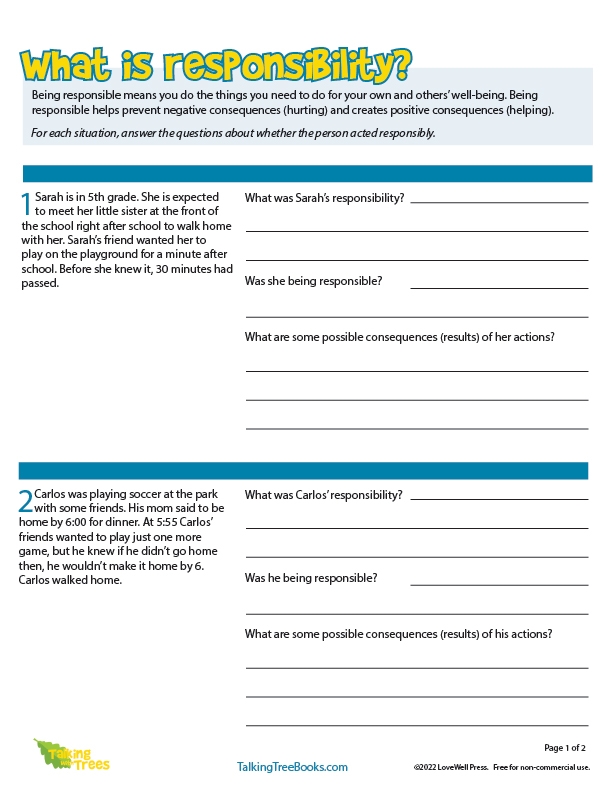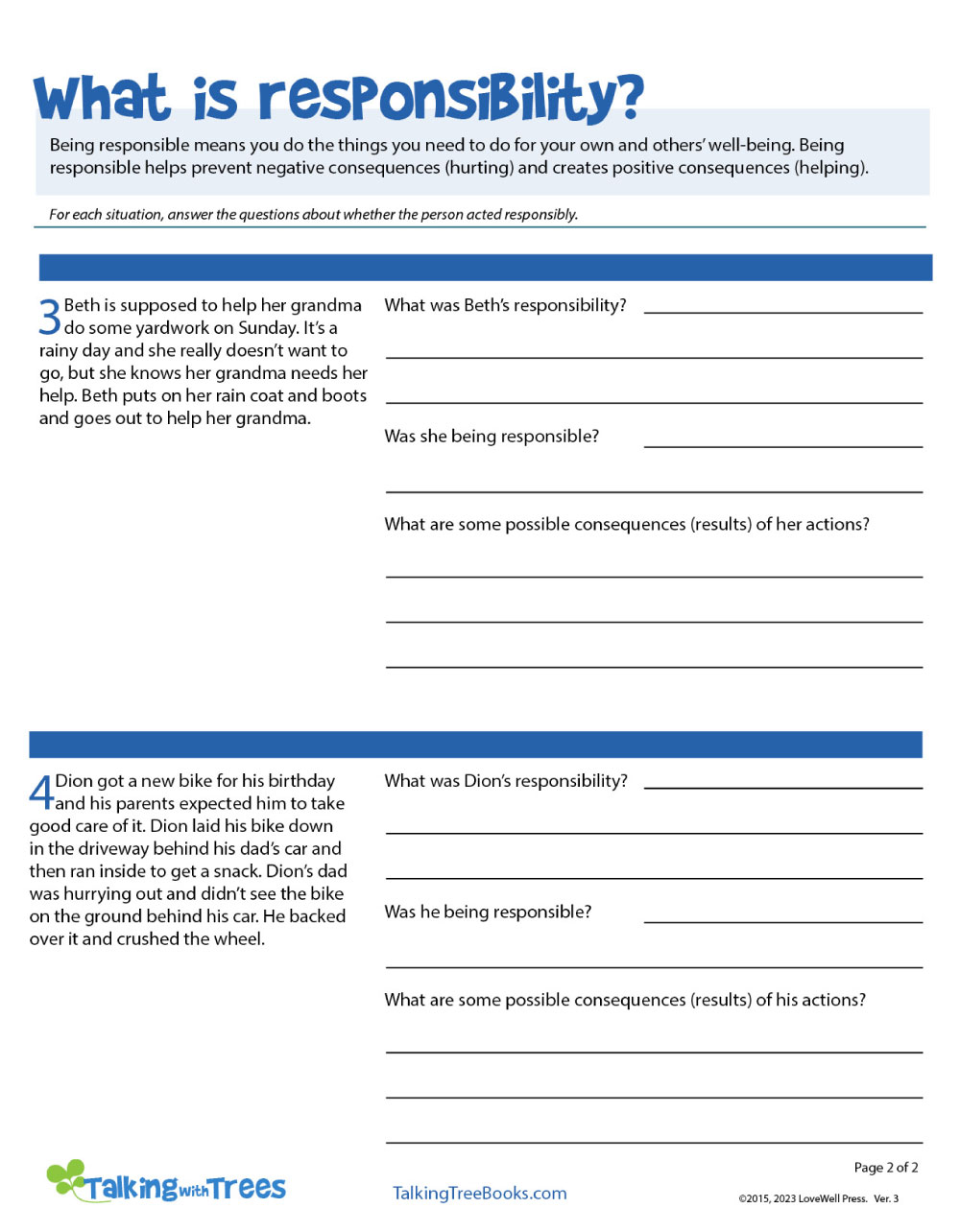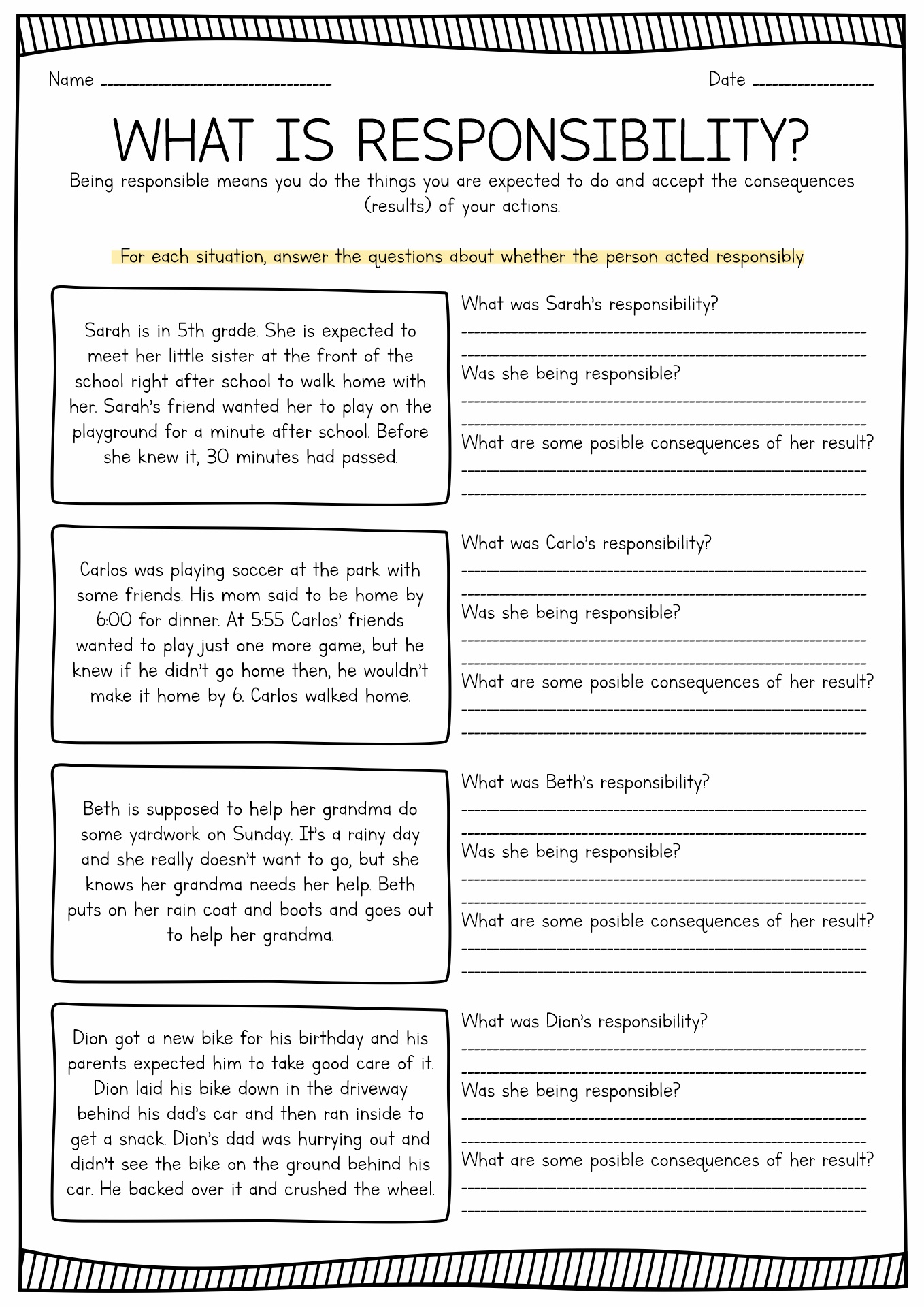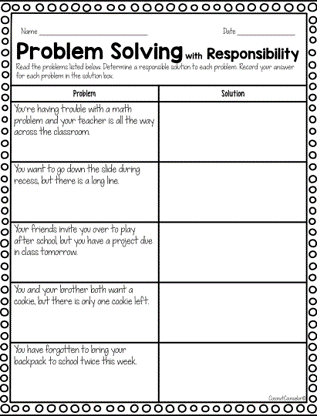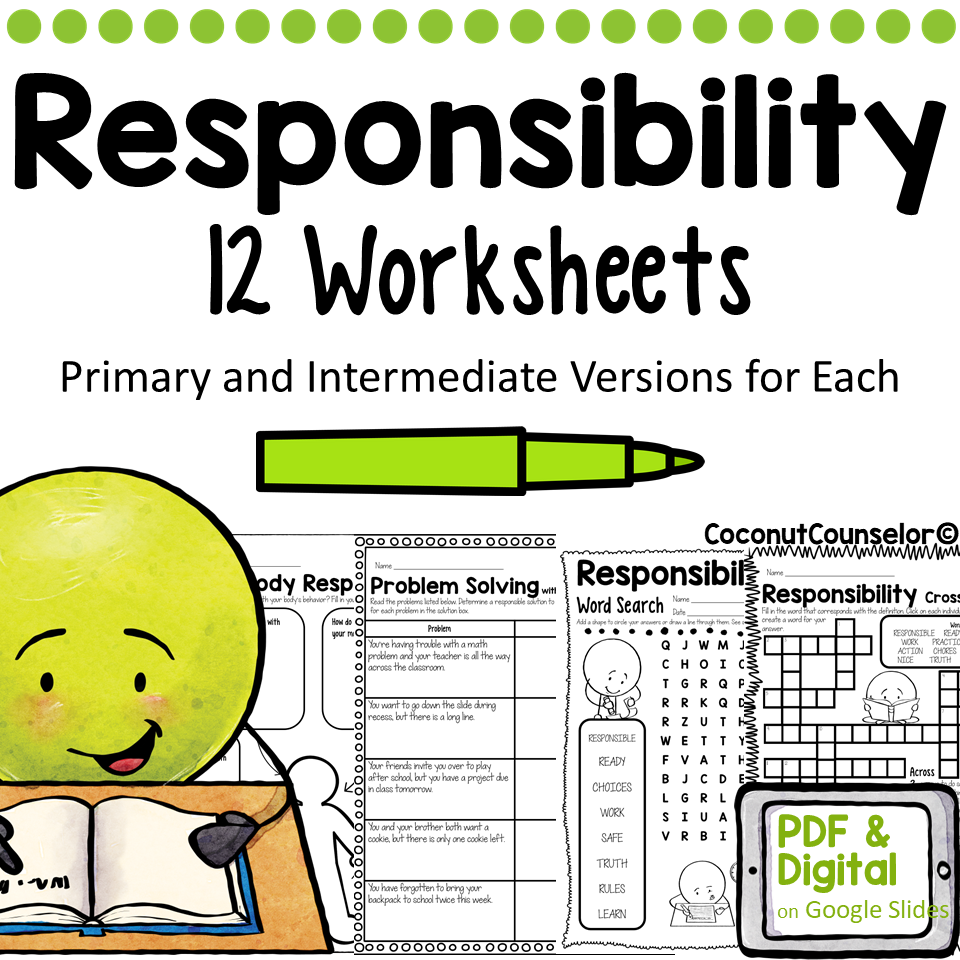Download NOW: Free Printable Responsibility Worksheets Your Kids WON’T Hate!
Meta Title: Free Printable Responsibility Worksheets for Kids
Meta Description: Help your kids learn responsibility with engaging, free printable worksheets! Find age-appropriate activities and tips to make it fun. Download today!
Responsibility. It’s a word that often triggers groans from kids and exasperated sighs from parents. But instilling a sense of accountability in children is crucial for their development, building their self-esteem, and setting them up for success in the future. Fortunately, it doesn’t have to be a battle! This article explores how to introduce responsibility to your children using engaging tools, focusing on free, printable responsibility worksheets that kids actually enjoy using. We’ll cover various age groups, provide practical tips, and offer resources to help you on your parenting journey.
Why Responsibility Matters for Kids
Before diving into worksheets, let’s briefly discuss why fostering responsibility in children is so important. It’s not just about chores; it’s about building essential life skills.
- Increased Self-Esteem: Successfully completing tasks, even small ones, gives children a sense of accomplishment and boosts their self-worth.
- Improved Problem-Solving Skills: Taking responsibility encourages children to think critically and find solutions to challenges.
- Enhanced Time Management: Learning to manage their responsibilities helps children prioritize tasks and develop effective time-management skills.
- Greater Independence: Responsible children are more capable of making decisions and taking care of themselves, fostering independence.
- Stronger Relationships: When children contribute to the family, they feel more connected and valued, leading to healthier relationships.
Choosing the Right Responsibility Worksheets for Your Child’s Age
The key to making responsibility worksheets effective is to choose age-appropriate activities. A worksheet suitable for a five-year-old will be vastly different from one designed for a teenager.
For Preschoolers (Ages 3-5): Simple Tasks and Visual Aids
Preschoolers are just beginning to understand the concept of responsibility. Worksheets should focus on simple, visual tasks that are easy to understand.
- Focus: Simple chores like putting toys away, helping set the table, or feeding a pet.
- Worksheet Features: Picture-based charts, stickers for reward, and coloring activities related to chores.
- Example: A worksheet with pictures of toys and a box, asking the child to draw a line connecting each toy to the box after they put it away.
- Tip: Keep it short and sweet! Preschoolers have short attention spans. Praise and encouragement are more effective than criticism.
For Elementary School Children (Ages 6-10): Building Habits and Tracking Progress
Elementary school children are ready for more complex responsibilities and can begin tracking their progress.
- Focus: Chores like making their bed, tidying their room, helping with meal preparation, and completing homework.
- Worksheet Features: Chore charts with checkboxes or stars to track completion, goal-setting sections, and space for rewards.
- Example: A weekly chore chart with specific tasks listed for each day, allowing the child to check off each completed task and earn a small reward at the end of the week.
- Tip: Involve your child in creating the chore chart. This increases their sense of ownership and makes them more likely to participate. Consider incorporating a reward system (e.g., extra screen time, a special outing) to incentivize positive behavior.
For Teenagers (Ages 11+): Independence and Financial Literacy
Teenagers are developing greater independence and can handle more complex responsibilities, including financial literacy.
- Focus: More complex chores, managing their own finances (allowance), completing homework, and contributing to household tasks.
- Worksheet Features: Budgeting templates, goal-setting worksheets, and checklists for chores with associated consequences (e.g., reduced allowance).
- Example: A worksheet that helps teenagers track their income and expenses, helping them learn about budgeting and financial responsibility. Another example would be a worksheet for planning a project, breaking it down into smaller, manageable steps.
- Tip: Open communication is key. Discuss the importance of responsibility and how it relates to their future goals. Encourage them to take on responsibilities that align with their interests. [Link to a website about teenage financial literacy] could be a helpful resource.
Where to Find Free Printable Responsibility Worksheets
The internet is a treasure trove of free resources for parents. Here are some reputable websites where you can find a wide variety of printable responsibility worksheets:
- Education.com: Offers a large collection of worksheets for various subjects, including responsibility.
- Teachers Pay Teachers: While many resources are paid, you can often find free downloads from individual teachers.
- Pinterest: A great visual resource for finding chore charts, reward systems, and printable worksheets.
- Canva: Offers customizable templates for creating your own chore charts and worksheets.
Suggestion: Search online using specific keywords like “free printable chore chart,” “responsibility worksheets for kids,” and “teenager budgeting worksheet.”
Making Responsibility Fun: Tips for Success
Here are some additional tips to make teaching responsibility a positive experience:
- Be Consistent: Establish clear expectations and consistently follow through with consequences.
- Lead by Example: Children learn by observing. Demonstrate responsible behavior in your own life.
- Positive Reinforcement: Praise and reward your child’s efforts, focusing on the process rather than just the outcome.
- Make it a Family Affair: Involve the whole family in chores and responsibilities.
- Be Patient: Learning responsibility takes time and practice. Don’t get discouraged if your child doesn’t get it right away.
- Adapt and Adjust: What works for one child may not work for another. Be flexible and adjust your approach as needed.
Conclusion: Empowering Your Child Through Responsibility
Teaching children responsibility is a gift that keeps on giving. By using engaging resources like free printable responsibility worksheets, you can make the process fun and effective. Remember to tailor the activities to your child’s age and interests, be consistent with your expectations, and celebrate their successes. By fostering a sense of accountability, you’re not just helping them with chores; you’re equipping them with the essential life skills they need to thrive. Download those worksheets, get started today, and watch your child blossom into a responsible, confident, and capable individual. [Link to a child development website].
